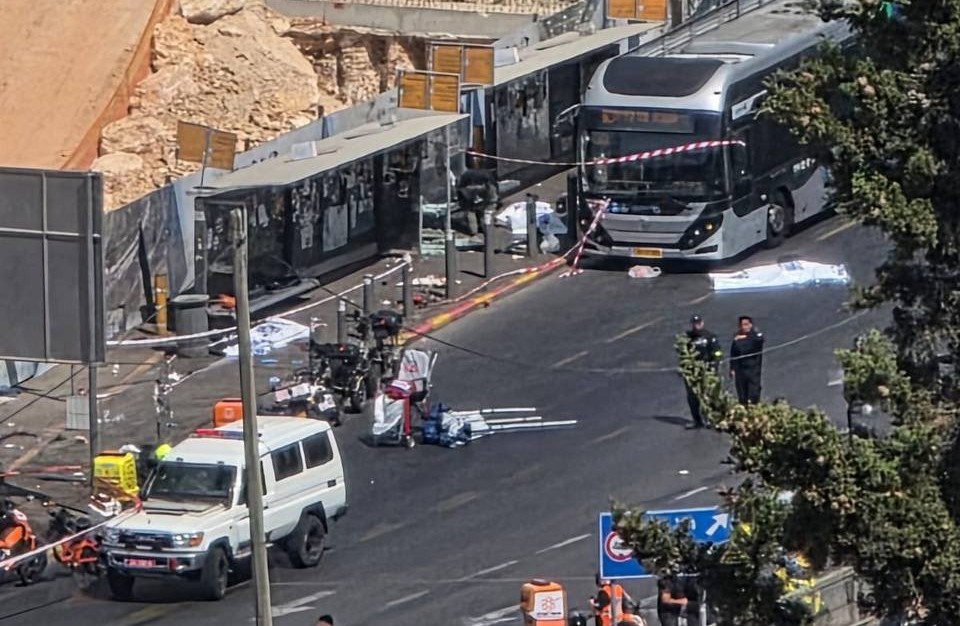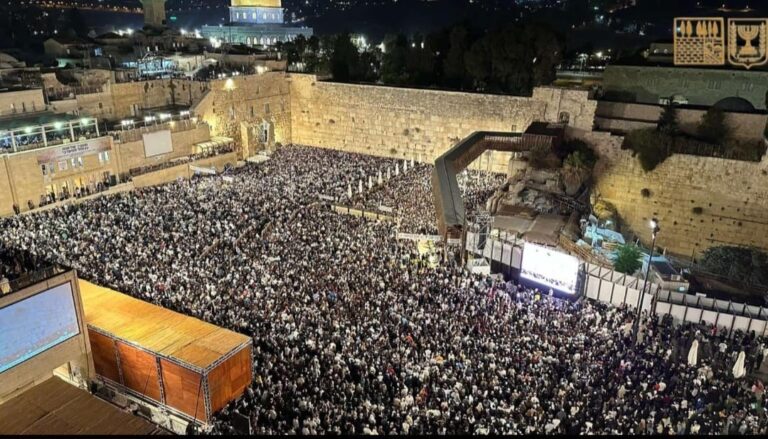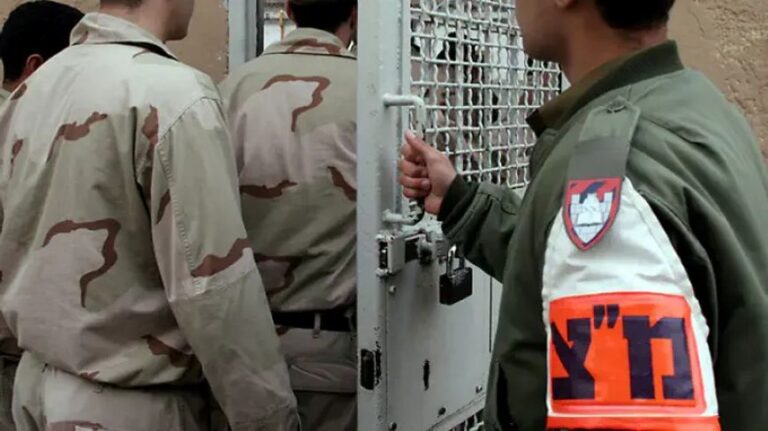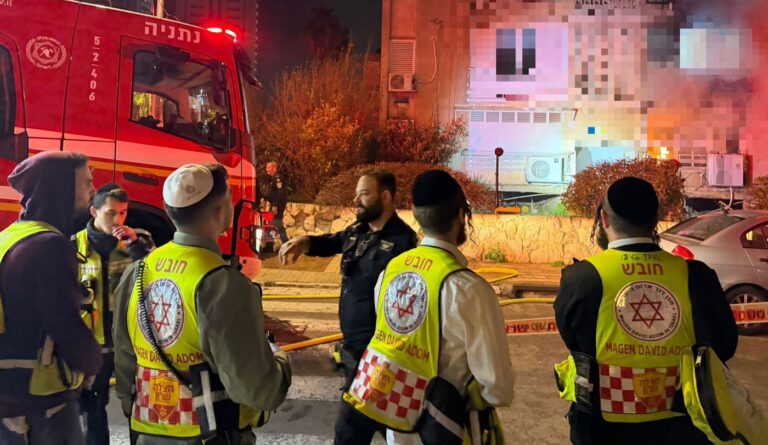Severe lapses in Israel’s security—both along the seam line and at busy public transportation hubs—were exposed in the wake of the deadly Ramot terror attack last week.
In the past, security guards were stationed at many central bus stations throughout the country. Today, there is no permanent security presence at bus stops, even at bustling stops that draw hundreds of people at sensitive areas in Jerusalem, Israel’s largest city.
UTJ MK Uri Maklev has long warned of this vulnerability. Following the deadly 2023 terror attack at a bus stop at the entrance to Jerusalem, Maklev—then Deputy Transportation Minister—made a formal request to the National Security Ministry demanding that it secure central bus stations and hitchhiking stops.
“These are sensitive points where dozens, and sometimes hundreds, of passengers gather every hour, and they are a preferred target for attacks,” Maklev wrote at the time. “Security guards must be restored to these locations, and the safety of passengers must be ensured.”
Three years later, nothing has changed. According to sources familiar with the issue, the Finance Ministry is the entity effectively preventing the move due to a refusal to budget the associated costs. Instead of securing passengers’ lives, the Finance Ministry chooses to allocate resources to employ ticket inspectors on buses and the light rail.
Kikar H’Shabbat also reported last week that on the Erev Shabbos before the attack, Ramot residents complained to the police about the entry of illegal Palestinians into their neighborhoods.
Residents of Rechov Yaakov Elazar and Rechov Harry Truman, which overlook a valley in the nearby village of Beit Hanina, have complained to the police several times in recent weeks about breaches in the security fence separating the neighborhoods, allowing infiltrators to freely enter Jewish neighborhoods.
But on the Shabbos before the attack, instead of a few Palestinians, a large group of Arab residents from nearby neighborhoods crossed the fence in close proximity to the main roads of Ramot, which at the time were packed with Jews on the way to shul.
Ynet reported last week that the breaches in the security fence near the Jerusalem area remained open in the days following the attack, with little to no security forces in sight, while Israel’s security bodies point fingers at each other regarding the responsibility for safeguarding the area.
Security officials estimate that at any given time there are about 50,000 illegal Palestinian workers in Israel.
A former security official told Ynet, “It is clear that if Israel wanted to hermetically close all the breaches, it would happen, but it doesn’t, and for years upon years, illegal aliens have entered.”
He hinted that security officials may turn a blind eye to the issue since the Palestinian workers are good for Israel’s economy as well as the stability of the PA, but “they wake up only when there is an attack.”
“It is clear that now, after the attack, they are not thinking at all about letting workers in, but if they want to close the fence, then they should close it hermetically, all the way,” he asserted.
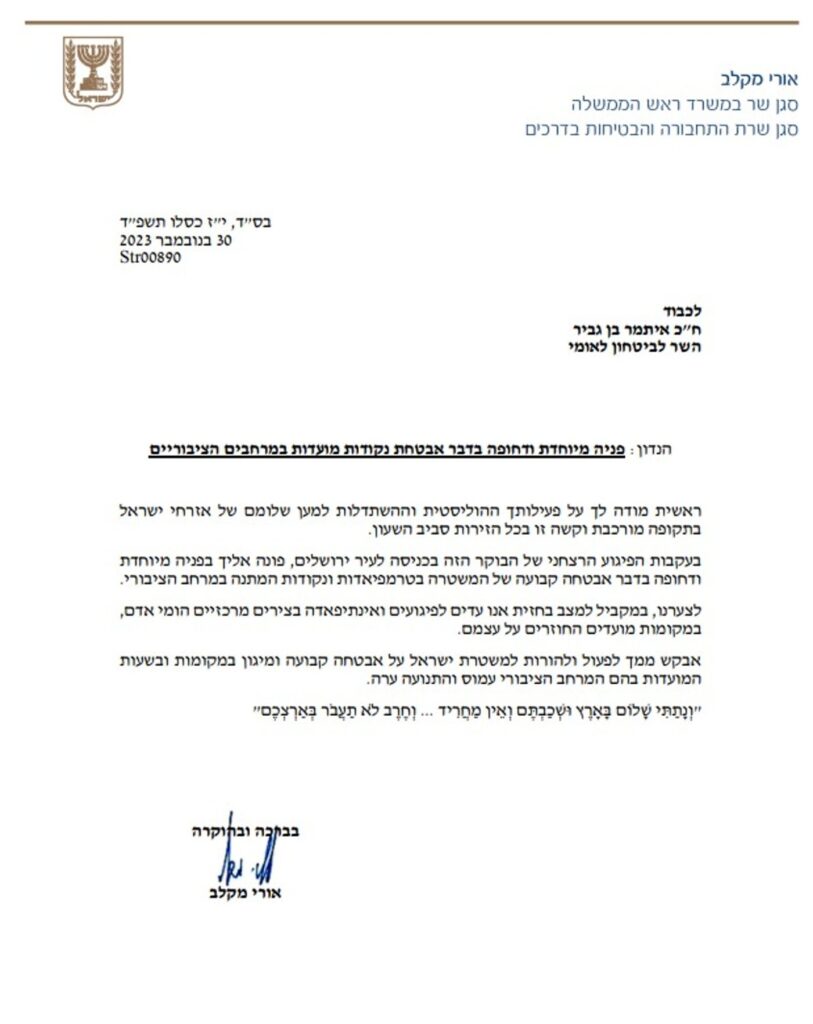
(YWN Israel Desk—Jerusalem)

